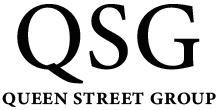The Power of Voice: Oracy as a Tool for Equity through Education
Lead Author: Sally Apps, Executive Principal Cabot Learning Federation
Twenty years ago this month I had an interview for a place on an English PGCE. As part of the interview I was asked to look at a poem and come prepared to talk about how I would teach it. I don’t remember much about the experience, in all honesty, but I can vividly remember the part where I was asked to bring to life Tom Leonard’s Six O Clock News, with its phonetic spelling of Glaswegian dialect, and the discussion that ensued about class, the status of language and Standard English. I remember talking about code switching, about the powerful weapon that is language by which we can be either emancipated or oppressed. I remember talking about the fact that teenagers love a conspiracy, and that my teaching of that poem would aim to open up with them the dialogue about the nature of class, dialect and power. I can remember speaking with passion about the fact that I wanted to use my life to help young people to discover their voices and to be alert to how others around them were using theirs, having influence upon them through mastery of language.
“I don’t want them to be fooled and pushed around all their lives – I want them to understand how language is used on them and I want them to know how to wield that power for themselves – and to do something good with it.”
I remember the beginnings of a smile flitting across the face of the tutor as he caught the eye of the other panel member and feeling that I had probably said the right thing – which was helpful, because on this hung the beginnings of a career first as an English teacher and then as a school leader that has throughout been underpinned by this deeply held belief.
Taking the lead on our collaborative work around disadvantage across a trust of 12,000 children has brought into sharp relief for me the concept of language, power and voice. The launch of our more focused work together on this topic occurred through a 20-minute film bringing together the voices of young people experiencing disadvantage, talking about what helps and what hinders them at school. It also included the voices of adults who had experienced disadvantage as younger people – and together it has been these voices that have been amplified as we have worked together to address the insidious effects of disadvantage on educational attainment in our trust. It has been important to us that before we have begun to work on behalf of disadvantage, we have truly listened to the voices of disadvantage, taking the lead from them in our work as an organisation.
Three Key Areas
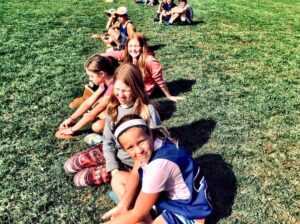 Our trust-wide disadvantage strategy focuses upon three critical areas: oracy, belonging and Benevolent Childhood Experiences. These themes were chosen because together they thread through and around the school and life experiences of children who matter to us. It is a painful truth that they seem to matter less to an inequitable society. By working intentionally on their sense of belonging to themselves, their communities and their schools, by counteracting adverse experiences with positive ones and by creating environments that nurture talk as a powerful tool for learning, we can equip them to navigate this profoundly sad truth, and ultimately to change it.
Our trust-wide disadvantage strategy focuses upon three critical areas: oracy, belonging and Benevolent Childhood Experiences. These themes were chosen because together they thread through and around the school and life experiences of children who matter to us. It is a painful truth that they seem to matter less to an inequitable society. By working intentionally on their sense of belonging to themselves, their communities and their schools, by counteracting adverse experiences with positive ones and by creating environments that nurture talk as a powerful tool for learning, we can equip them to navigate this profoundly sad truth, and ultimately to change it.
Hashi Mohamed, in his book People Like Us: What It Takes to Make it in Modern Britain, powerfully outlines this inequality and the alienating effects of social immobility. It is still, to date, the best book I have read on the topic. I cannot recommend highly enough that you read it. It will challenge you, entertain you, break your heart and steel your resolve.
In his book he describes a time when he was homeless aged 18 and engaging with the charity Centrepoint in Soho, London. At the time the system involved proactively calling around hostels to secure a place for the night, for the next two weeks, then for the next six months and so on. He noticed that:
“Many of these young people lacked the confidence to make the calls in the first place, or to insist that they should be considered, or they couldn’t explain why they needed the bed in a way that made sense of the busy people on the other end of the phone. Despite the fact that they were vulnerable, they weren’t getting anywhere.”
This rings so true with other experiences, for example with the extraordinary organisation that is the Citizens Advice Bureau – it is often the case that those most in need of support and advocacy are those least able to articulate it, to know who to ask for help or to be able to explain exactly what it is that they need. The volunteers of the Citizens Advice Bureau work tirelessly to reach the people who need the service the most, like many charitable organisations, and it is often the case that the very people who need them the most are unaware of the advocacy awaiting them; in many cases they are unable, at least at first, to articulate what it is they need.
This long, silent shadow of disadvantage follows young people everywhere, and without being better equipped through a strong oracy education, it is an impossible spectre for them to shake off.
On the Radio 4 Woman’s Hour programme some months ago, a woman was telling her story of achieving a conviction for rape for the man who attacked her. At that time there was around a 1 in 70 chance of prosecution for reported rape, and a much lower conviction rate. In her description of the process of going to court, the woman spoke about how her own level of education, her ability to narrate the events, her own eloquence and articulacy were intrinsically linked with the success of her case, and that for hundreds of other women subjected to the same horror, their weaker oracy would stand in the way of them seeing justice. This stems not only from not having the words to say but also not having the experience and hence the belief that they would be listened to, taken seriously and acted upon: just one example of the deep systemic inequality at play.
Cross reference this with the words of a seven year old attending School 21 in East London:
“What makes me enjoy talking most is that everybody’s listening to you, and you’re part of the world, and you feel respected and important”.
The difference is stark: on one hand people can be subjected to untold traumas and find themselves at a loss as to whether or how to seek justice – on the other, it is possible even at a young age to recognise the power of voice, the connectedness it promises, and the sense of personal well-being that comes from owning it. For the sake of any of our children experiencing trauma either as a child or later as an adult, we need to instill in them this strong sense of personal value, lest they need it to advocate for themselves in any of the parts of the system that currently seem inaccessible to them. Feeling respected and important is a critical factor in developing a sense of belonging – which is in itself one of the key protective factors for children at risk.
Oracy as a tool for engendering belonging
Understanding the extent of children’s belonging is something we have begun to be more intentional about as a trust in recent months, and building upon what we know to increase that sense of belonging both at cohort and individual level is an important element of our disadvantage strategy.
As performance coach Owen Eastwood outlines:
“To feel a sense of belonging is to feel accepted, to feel seen and to feel included by a group of people, believing that we fit in, trusting that we will be protected by them. To not feel belonging is to experience the precarious and insecure sense of an outsider.”
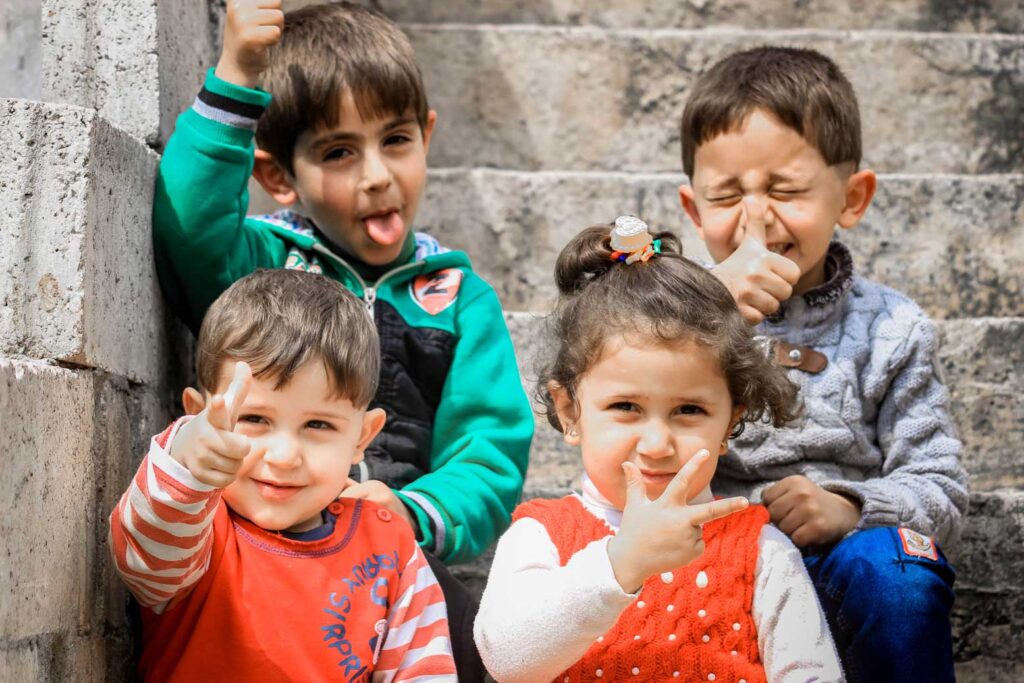 The effects of this ostracism can be catastrophic, and can lead to some of the most harmful behaviours. Working with young people at risk of Child Criminal and Sexual Exploitation, and with those involved in serious violence, it is abundantly clear that what lies at the heart of their devastating life choices is an intense desire to belong in a system and a world that has repeatedly told them that they do not. Their deep sense of rejection is all too often linked to their inability to express themselves, to make their wishes known or to have influence on others with anything but force. The impact upon mental health and well-being cannot be underestimated – and yet development of oracy can be a protective factor.
The effects of this ostracism can be catastrophic, and can lead to some of the most harmful behaviours. Working with young people at risk of Child Criminal and Sexual Exploitation, and with those involved in serious violence, it is abundantly clear that what lies at the heart of their devastating life choices is an intense desire to belong in a system and a world that has repeatedly told them that they do not. Their deep sense of rejection is all too often linked to their inability to express themselves, to make their wishes known or to have influence on others with anything but force. The impact upon mental health and well-being cannot be underestimated – and yet development of oracy can be a protective factor.
The Oracy All Party Parliamentary Group Inquiry points to an urgent and pressing need, post-lockdown, to prioritise oracy in schools. Within the report one teacher comments that: “Oracy heightens a community’s ability to belong to each other, whilst valuing individuality. It makes every voice matter; these processes are built on the principles of a democratic society.”
This crucial element of childhood experience is formative, and has a greater impact for those experiencing disadvantage than others. It is for this reason that we need to take more care with this cohort. As Dr. Fiona Pienaar of Place2be outlines:
“The connection between oracy and well-being is crucial and while there are many other risk factors that can impact on a child and young person’s well-being, oracy is one that we can turn into a protective factor… Unless we give oracy and its connection to well-being the recognition and attention it should have in education, we will continue to have children and young people who are likely to develop speech, language and communication difficulties, display challenging behaviours in their efforts to be understood and, in some cases, embark on a trajectory of lifelong mental health and well-being challenges… The fact that research indicates that over 60 per cent of young offenders have difficulties with speech, language and communications should alert us to the urgency of the situation.”
The situation is indeed urgent. It was urgent before the Covid pandemic forced children into isolation. It was urgent before the inequalities in our society were deepened. For some groups of children, deprivation of oracy is yet another anchor preventing them from achieving the heights of their inner potential.
Who needs oracy education the most?
It is interesting that the APPG Inquiry explicitly references those experiencing disadvantage and those with additional needs as being the most in need of effective oracy approaches: in answering the question “Who needs oracy education most?” the response from the APPG argues that: “Oracy education matters for all children and young people, the benefits are accretive and go beyond addressing deficits, but our Inquiry found that oracy education can have a disproportionate impact on the learning and life chances of some children and young people for whom the blight of an absence of oracy in their education will also be most damaging.
“Research consistently finds that children from low-income homes start school with lower language levels than their more advantaged peers, and these gaps grow as children move through school. Of the children who persistently experienced poverty, 75 per cent arrive at school below average in language development. Around 50 per cent of children in some areas of deprivation begin school with delayed language. The pandemic has also widened the language gap.
“Research shows a greater focus on oracy can enable disadvantaged students to fulfil their potential and narrow the attainment gap between them and more advantaged peers. Speech, language and communication experts contributing to the Inquiry highlighted how universal oracy provision, complementing targeted and specialist provision, has the potential to help transform schooling for children with these needs. Oracy can improve access to and subsequent inclusion in education for children with SLCN and with special educational needs and disabilities (SEND).”
It is clear that for children experiencing economic disadvantage and for those with SEND, oracy development is a key enabler. It is also, fortunately, something that can and should be provided at cohort level so that all children benefit. If we recognise that in many areas there is also a link between economic disadvantage and race, we can assume that by developing children’s oracy across the board, we are also adding to a growing body of work which seeks to eradicate racial inequality too. Even aside from the educational advantages of providing children from different ethnic backgrounds with this vital tool for learning, the impact of harnessing voice, exploring personal identity, being heard, respected and valued cannot be underestimated. If you are growing up in a society where racism is endemic, it matters even more that there are safe spaces to clear your throat and rehearse your use of your own powerful voice. All schools have a duty to be those safe spaces, and to help young people traversing the fault lines of race and identity in the UK today, schools must understand that oracy education is simply more important for some groups.
From the Inquiry there is a strong and sustained argument for better oracy in our schools and a higher prioritisation of oracy across the system. It is helpful to be cognisant of this as we invest in oracy as part of our planned work for this academic year and beyond – it is a sign that we have ‘placed our bets’ in exactly the places where they are needed at this time.
Equity through oracy in the curriculum
Whilst curriculum is for us our best bet in terms of enabling children from a variety of backgrounds to progress and ultimately to realise their agency, oracy is one of the defining pedagogical approaches that will enable this. By harnessing the power of talk in the classroom we connect young people with a mighty lifelong weapon, their voice, which in more privileged settings the world over is already being nourished. Private schools are renowned for their focus on performance and debate as a critical element of curricular experience: famously there are more theatres in private schools in London than there are in the West End. The corridors of power are lined with the images of the elite, passed back and forth by generations who have had the privilege of similar experience – and one of the most powerful tools at their disposal is their oratorial skill.
“When I take our students on the debating circuit… they will largely be surrounded by children from independent [schools…]. I’m on a mission to make sure that children like ours in schools like ours have access to what is essentially the language of power,” Geoff Barton, Headteacher, King Edward VI School (now General Secretary, ACSL)
It does seem perverse that such a powerful weapon as voice and the ability to use it should have become the privilege of those with the greatest power base to start with. Oracy is free – every child has a voice, figuratively and (for the overwhelming majority) literally – and yet in the schools with the least resource it is a scarcity. Conversely in the schools with the most resource at their disposal, oracy is such a foundational factor that it is a feature for which those organisations have become known. The disadvantaged and the disenfranchised have been shortchanged for too long.
In his theory of ‘triple jeopardy’, Dr Brian Mole asserts that children experiencing disadvantage have three areas of threat:
- less extensive sets of understanding into which to fit new learning;
- less practice at changing those sets of understandings to accommodate new learning;
- lack of language development that would allow these accommodations to be made.
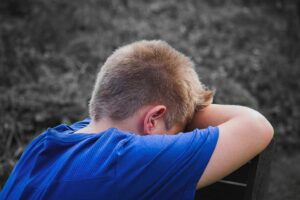 It is therefore not just the curriculum that matters, but also the curricular experience and the oracy and language development that underpins it that together will have the most impact for those starting with the greatest deficit. A focus on oracy through our curriculum is the best way to make the difference to the children who need it most within what is a limited timeframe in their lives. Sadly for a small proportion of children, their lives are cut short at school age or shortly after – for these children especially, school needs to be exceptional. National statistics would tell us that the lives of those in more socioeconomically disadvantaged areas are on average shorter, which means this period is proportionally more significant to this group too – another reason, if we needed any, to focus on getting it right.
It is therefore not just the curriculum that matters, but also the curricular experience and the oracy and language development that underpins it that together will have the most impact for those starting with the greatest deficit. A focus on oracy through our curriculum is the best way to make the difference to the children who need it most within what is a limited timeframe in their lives. Sadly for a small proportion of children, their lives are cut short at school age or shortly after – for these children especially, school needs to be exceptional. National statistics would tell us that the lives of those in more socioeconomically disadvantaged areas are on average shorter, which means this period is proportionally more significant to this group too – another reason, if we needed any, to focus on getting it right.
Here links the concept of Benevolent Childhood Experiences. Mole provides a critique of the popular practice of codifying and addressing gaps in learning through targeted catch-up programmes and ‘detailing the deficit’. Whilst these have their place, they are not fully addressing the issues at hand. Instead, he argues: “If some children have not enjoyed the rich range of experiences that would enable them to develop the more complex neural networks that make learning easy, then they need those experiences. The Sutton Trust has even identified them – they need the visits, the days out, the trips to theatres and museums, the conversations over meals, the being read to, the being surrounded by books, the having hobbies – all of this. These experiences will challenge their schemata and give them practice in changing and extending them. This will be done not in an artificial, theoretical and didactic classroom-bound way but in practical situations where there is emotional investment in learning and first-hand experiences that shape that learning and enabled a schema to be adjusted.”
Oracy and Benevolent Childhood Experiences
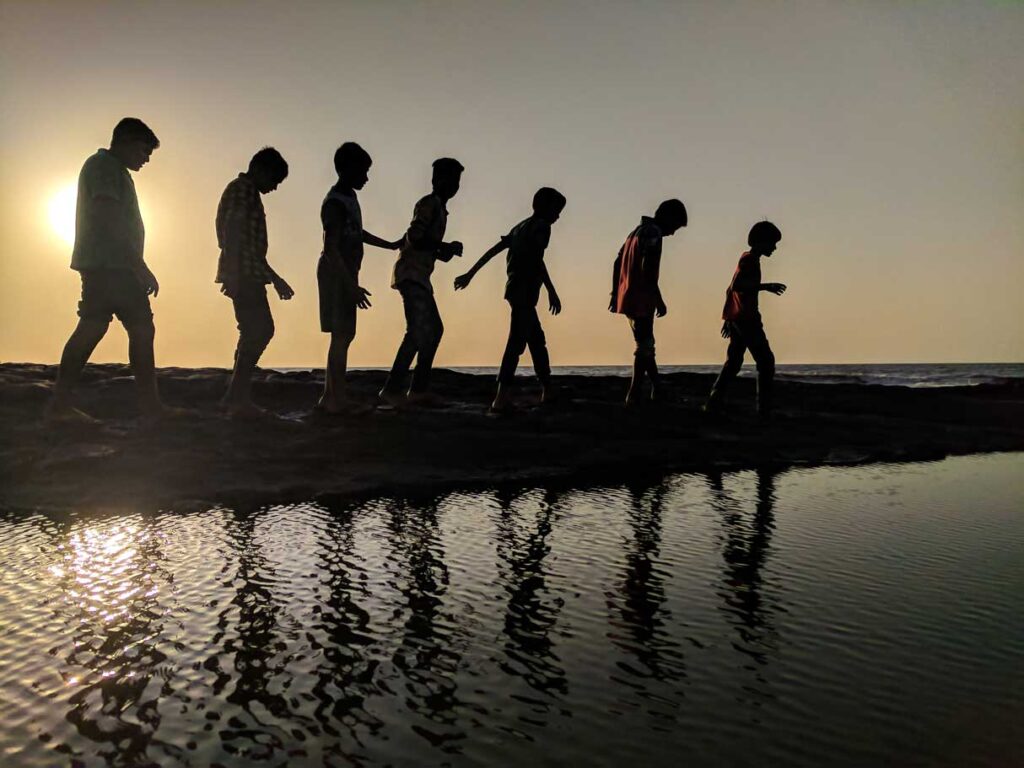 Our approach to oracy and to the joy-filled learning that our shared curriculum promises is linked to more intentional creation of Benevolent Childhood Experiences for good reason – because even pre-pandemic these were the kinds of experiences that were off limits to many of those with lower socio-economic status: post-pandemic there is an even greater urgency in relation to recovering for all our children, and particularly our most disadvantaged, the lost ground of experience that underpins schemata and develops a child’s ability as a learner. Some of our oracy work is built exclusively on this, with opportunities constructed for children to perform as both a development tool and a Benevolent Childhood Experience in itself.
Our approach to oracy and to the joy-filled learning that our shared curriculum promises is linked to more intentional creation of Benevolent Childhood Experiences for good reason – because even pre-pandemic these were the kinds of experiences that were off limits to many of those with lower socio-economic status: post-pandemic there is an even greater urgency in relation to recovering for all our children, and particularly our most disadvantaged, the lost ground of experience that underpins schemata and develops a child’s ability as a learner. Some of our oracy work is built exclusively on this, with opportunities constructed for children to perform as both a development tool and a Benevolent Childhood Experience in itself.
As a Headteacher I was proud to introduce to the school an engineering programme in partnership with Airbus in Bristol, which provided Year 9 students with the opportunity to build and fly a plane, working over several months with a team of engineers – a project that has only strengthened over time in its impact and appeal. At the inaugural assembly I was acutely aware of the disadvantage in my cohort, and at the likelihood that some of the most disadvantaged students in the room counting themselves out of an opportunity that was absolutely targeted at them. I knew this would happen from experience – in spite of a great deal of work over a number of years, it was still the case that for many students experiencing disadvantage there was an automatic assumption that new/different/extra experiences just were not for them. I recall stating in the assembly that “I do mean you, I am speaking to you” throughout and labouring the point a number of times. At the end of the assembly, a young man hung back – a boy with plenty of academic ability and arguably the most disadvantaged in his cohort. He was living through things that I wouldn’t wish for any adult to face, let alone a child. He often brought that weather into school, a place where he could be his authentic self and where in so doing he often clashed with our reasonable boundaries. We loved him, of course.
“I know you said you did, Miss, but you didn’t really mean me, did you?” was the question he had been compelled to ask. He explained that he thought his behaviour would be a barrier and we agreed it would be unlikely that he would behave poorly on the programme if he applied. Which he would.
He went on to be the most successful participant in the programme that year, was talent spotted by the engineering team and went on to work at Airbus as part of an apprenticeship programme.
It took repeated invitations, both at cohort level and at individual level, for him to apply. The process of application relied both on written communication and on the ability to articulate motivation and candidature. Our young man prepared well and performed well. It was a risk to assume he would behave well, as this wasn’t necessarily in line with our experience of him. But like Michaelangelo’s David, the engineer in him was always inside the rock, waiting to be discovered. It was our job to let him out.
I’m proud of this story, but it comes with a significant dose of realism and sadness: I know in this case, the outcome was good. How many more children do I not know about, who didn’t raise their hand, who assumed an opportunity wasn’t for them, who were never presented with the opportunity in the first place? How many children had an inkling of interest but not the words to express it? I cannot answer that question: I can only hope that the verve I carried into my PGCE interview was carried enough into my headships that I made a bigger difference than might otherwise have been made, and that I laid the foundations for others to build upon. What I do know is that without experiences to offer like the one outlined above, less difference would certainly have been made.
Oracy as pedagogy
In 2014 the World Health Organisation stated that: “School may be the last opportunity to help children and young people develop oracy skills to the standard that is sufficient for them to realise their own abilities, cope with the normal stresses of life, work productively and fruitfully, and make a contribution to their community” and this in and of itself might be considered reason enough to prioritise this within our pedagogy.
 There is a significant challenge therein. Language is such a powerful cultural and psychological tool that is acquired and developed at different ages, stages and paces – this presents us as teachers with some significant hurdles to overcome. We do generally have a strong collective understanding that we are all teachers of literacy. As teachers of oracy we can feel convinced of the value of the work but perhaps less skilled or expert at its execution. Metacognition, self-regulation and reasoning are all critical thinking skills that have emerged over time as those that are vital to children’s ability to learn, and whilst children’s experiences and capabilities vary enormously, research has proven time and again that teacher’s interactions with children can significantly improve these capabilities: all are strengthened through talk. In our teaching we know that we should be teaching children to talk and teaching them through talk, developing a greater understanding of dialogic approaches as we bring our curriculum to life and encourage our children to be challenged by it, to do battle with the concepts, to wrestle with their own assumptions. Professor Rupert Wegerif writes: “Conceptual mastery is not just about getting new information from a book or the whiteboard; it is about seeing the world in a new way.” We need to carry into our thinking about curriculum the Martin Robinson approach that: “This is the best that’s been thought and said – and you need to know it – but it might be wrong, and it certainly isn’t finished.”
There is a significant challenge therein. Language is such a powerful cultural and psychological tool that is acquired and developed at different ages, stages and paces – this presents us as teachers with some significant hurdles to overcome. We do generally have a strong collective understanding that we are all teachers of literacy. As teachers of oracy we can feel convinced of the value of the work but perhaps less skilled or expert at its execution. Metacognition, self-regulation and reasoning are all critical thinking skills that have emerged over time as those that are vital to children’s ability to learn, and whilst children’s experiences and capabilities vary enormously, research has proven time and again that teacher’s interactions with children can significantly improve these capabilities: all are strengthened through talk. In our teaching we know that we should be teaching children to talk and teaching them through talk, developing a greater understanding of dialogic approaches as we bring our curriculum to life and encourage our children to be challenged by it, to do battle with the concepts, to wrestle with their own assumptions. Professor Rupert Wegerif writes: “Conceptual mastery is not just about getting new information from a book or the whiteboard; it is about seeing the world in a new way.” We need to carry into our thinking about curriculum the Martin Robinson approach that: “This is the best that’s been thought and said – and you need to know it – but it might be wrong, and it certainly isn’t finished.”
Empowering and enabling our children to traverse and grapple with our curriculum, to shape it and to reason with it, is the only thing that will make our curriculum effective. Of course, there is particular knowledge that must be grasped for children to have something to talk about but even with the process of learning this knowledge, dialogic teaching has a place: as a teacher, a good grasp of this is crucial. Vygotsky suggested that social interaction is the origin of all ‘higher order thinking’: “Every function in the child’s cultural development appears twice: first on the social level and later on the individual level; first between people and then inside the child… All the higher order functions originate as actual relations between people.”
Critically, dialogic thinking goes beyond what might be achieved in school – it shapes the way we encounter ‘the other’ and how we engage with it. Laura D’Olimpio of Australia’s University of Notre Dame asserts “…the identity that we should be teaching children to recognise is an identity that involves ‘recognising humanity in the stranger and the other’ and responding humanely to the human in every cultural form.”
It might be argued that the impact for individuals, families, community and society is too great if we fail to teach these skills well. Inequality exists and has deepened through the pandemic. Racism, misogyny and bias exist and are at times undetected. As we equip our children to be better at recognising humanity in the ‘other’ we are actively providing them with what is needed for personal growth and well-being, and at a societal level we are providing the tools to address inequality. Faced with such a bleak post-pandemic picture, surely it is the very least we can do for our children to hand them the tools for the job, even if the manual remains unwritten.
So why oracy?
Because we know that three quarters of children who experience persistent poverty throughout their early years start school without the language skills they need for learning.
Because the United Nations Convention on the Rights of the Child (UNCRC) highlights in at least two of the Articles, the oracy privileges that all children should enjoy, including ensuring that those who are “capable of forming their own views be given the right to express those views freely… and that they be given due weight (Article 12), and that each child should “have the right to freedom of expression, including freedom to seek, receive and impart information and ideas of all kinds”, including orally (Article 13).
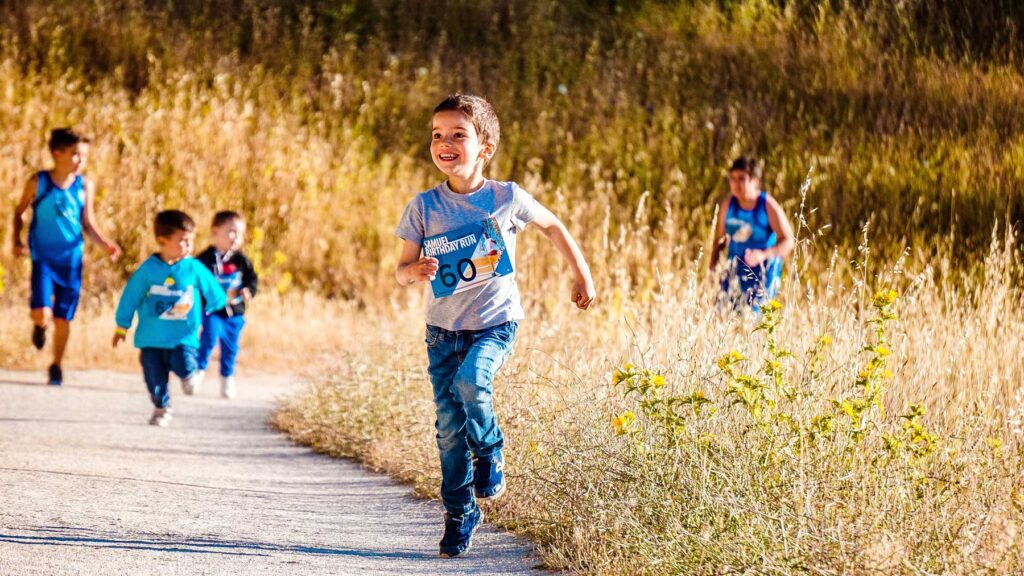 Because we believe that children should have a sense of self, a sense of place in the world and to understand their own agency.
Because we believe that children should have a sense of self, a sense of place in the world and to understand their own agency.
Because of the top 10 skills needed in the UK workforce as highlighted by Deloitte in 2016, seven are strongly rooted in oracy (oral comprehension, oral expression, deductive reasoning, critical thinking, speaking, monitoring and active listening).
Because language is power, and the command of language enables power to be utilised and also to be deconstructed.
Because it supports and promotes positive mental health and well-being, which is in itself a protective factor.
Because it fosters a sense of belonging and connectedness that our children desperately need.
And because through oracy, the intent of our curriculum, written exclusively with our children at its heart, can truly be realised.
Hashi Mohamed argues that: “Once we get to a place where young people are trained, prepped, pushed and encouraged to be articulate, where they can deploy a wide vocabulary with a clarity of thought, and are armed with new and exciting ideas, then we might be in a position to reshape the current linguistic landscape in favour of social, cultural and ethnic diversity. Perhaps then we will have found a way of neutralising prejudices instead of playing right into them. Perhaps we will have conquered another corner of the social mobility story and moved one step closer to a more equal society.”
When I stepped into my PGCE interview I carried with me great hopes, intense passion and a great deal of naivety. I believed I could change the world (and I still do). I had acquired these things through a life of relative privilege and an oracy-rich education. Over 20 years my resolve has been tested and I have learned a great deal about just how hard this work is – and yet I believe those things no less fervently today than I did then. The difference now is that I have experience and evidence and stories that prove those beliefs.
We have chosen oracy as a key strategy for all children because it will benefit all children. We know that those who will make the greatest gains as a result of a strong oracy education are those experiencing the most disadvantage, and this aligns entirely with our reason for existing as a trust.
We have come together at this point in time and around this particular priority for the good of the children to whom we have made a commitment. They rely on us to ensure that the years they have in school equip them for the years they will spend in the world beyond it, not simply in terms of their contribution to a workforce but as agents in society, as whole people, connected to themselves and their communities with significant spheres of influence. For this they need words, concepts, confidence and a voice to speak them.
Maya Angelou puts it remarkably simply: “Words mean more than what is set down on paper. It takes the human voice to infuse them with shades of deeper meaning.”
Through our work, may all our children realise the power of their own voice.
